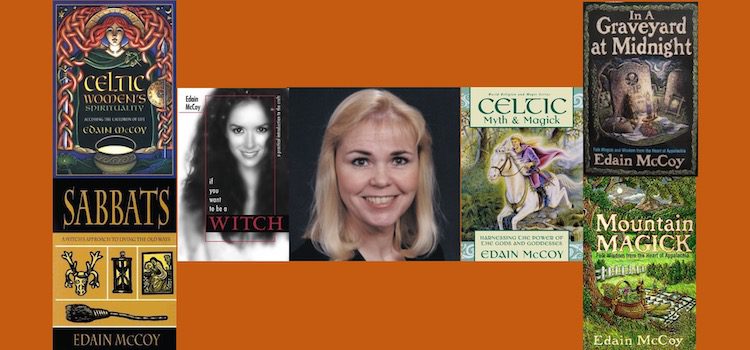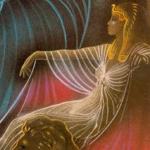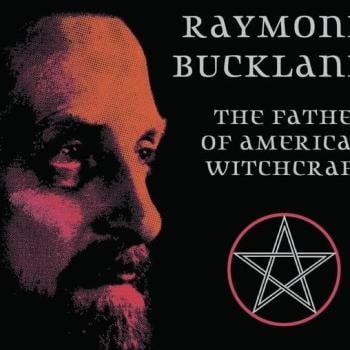On March 21 author and teacher Edain McCoy passed away at 61 due to complications from the flu. I did not know McCoy well, nor was I particularly inspired by any of her works, but I was saddened to hear of her passing. I met her in August of 2018 and I found her to be soft-spoken, kind, and an exceptionally nice person. She was someone after meeting that I legitimately wanted to share space with again.
Since the start of the Pagan revival in the 1950’s authors have had an outsize influence in Paganism. Much of that is due to the decentralized nature of our community. With no popes (and woe to anyone who wishes for such standing) or all-encompassing organizations, authors have become something of a touchstone for many of us. (This is beginning to change with the rise of social media, but that’s a post for another day.) A Witch in Pennsylvania and a Druid in Iowa are just not going to share a teacher or a group, but they can share the words of a writer published by a large press such as Llewellyn or Samuel Weiser. And even though those two individuals don’t necessarily share a tradition, they do share ideas and beliefs, and both were just as likely to enjoy McCoy’s Sabbats: A Witch’s Approach to Living the Old Ways first published in 2001.
For many of us Edain McCoy was one of those writers. She was especially prolific in the 1990’s, and for many of us in Generation X, she was an early gateway into the worlds of Witchcraft and Celtic magick. McCoy never quite reached the heights of a Silver Ravenwolf or Raymond Buckland, but she had a presence in both local Witch shops and the big-box-bookstores such as Barnes and Noble and Borders. McCoy was not the first Witchcraft writer I picked up in the 90’s, but she must have been one of the first ten. Her books had reach, even if they weren’t the favorites of most of the people I knew back then.
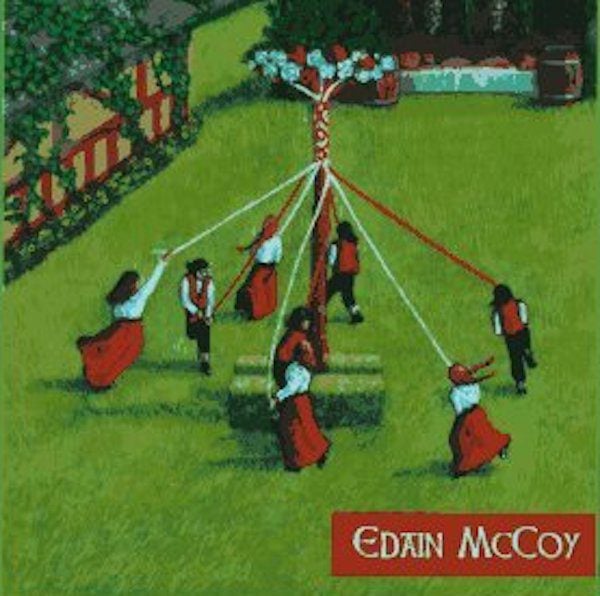
I feel like many of the writers (and publishers) who were working in the 90’s (and earlier) have been unfairly chastised for their lack of historical accuracy. Perhaps the most critiqued book from that era is McCoy’s Witta: An Irish-Pagan Tradition, originally published in 1993 (and deemed by me the worst book about Witchcraft ever). It’s true that Witta is not an Irish-Pagan tradition and that there never was an ancient Irish potato goddess, but I don’t think McCoy was intentionally trying to lie to anyone when she wrote her book twenty-five or so years ago.
I can write that because I’ve read as many responses as I’ve been able to find from McCoy about that particular book. In nearly all of them she writes about someone sharing the tradition with her, and then her later writing about it. I don’t think there was anything dubious or nefarious about what she was doing. Knowing just how slow publishers work, McCoy wrote her book in the years before the internet, and several years before sweeping histories such as Triumph of the Moon were in print. When I write these articles I often hear a chorus of “Person X was preaching this history long before Ronald Hutton,” but with only so many hours in the day, an extremely disconnected community, and the sheer limits put upon all of us simply by being human, there’s just no way anyone can know EVERYTHING. We all simply try to do our best, I’m guessing McCoy did her best.
Back in the 1990’s the idea that Witchcraft was a “Celtic tradition” secretly passed down for generations was something of a mantra in both books and the conversations shared by many of us. I remember thinking Michael Flatley’s Lord of the Dance was a “Pagan” show because it had “Celtic music” in it. (I also remember getting an excited call from a girlfriend imploring me to turn on PBS and watch this awesome “Pagan show” that was currently airing.) And to be honest that all seemed perfectly reasonable because Irish music and dance felt Pagan to many of us. I liked Pearl Jam in 1993, but their music didn’t transport me mentally to a different time or place, but Uilleann pipes sure did.
Many of McCoy’s other books don’t hold up particularly well when judged by their historical accuracy, but I’m not sure that’s always a fair barometer of worth. I love history, I love to get history right, but wrong or highly imaginative history has its place too. In the ancient world there were maiden goddesses, mother goddesses, and crone goddesses, but there was never any ONE GODDESS in history who went from young girl to senior citizen over the course of a year.
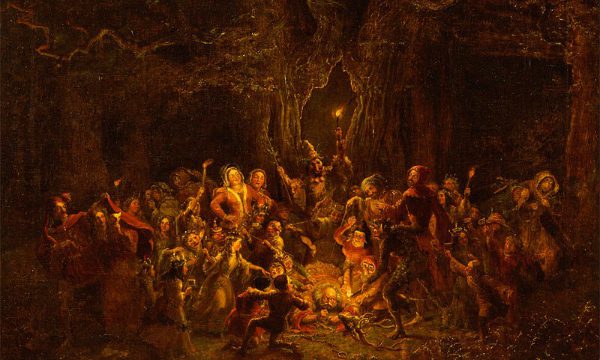
Maiden/Mother/Crone is a modern myth, and it resonates because it feels like something that probably should have happened 2000 years ago. Over the years this new myth has been laid overtop of older myths because people find it expedient in ritual. Myth is not the Bible, it should always be a living breathing thing, and it’s fine to tweak it as long as we remember the original version of the story and other variations. (And it’s also possible that many of those original stories are flat out wrong, since many of them, cough cough Celtic and Norse, were written by Christians.) The stuff that McCoy wrote that was flat out wrong has resonated with a lot of people. She thought they were old, they really weren’t, but if they work for someone, who cares?
Many of the things we associate with the sabbats today are also rather modern though they feel old. The idea that “the veil thins at Samhain” feels timeless yet it’s a modern idea that’s now been attached to a reborn holiday. It’s what some historians call an “invented tradition,” and Modern Paganism is full of them. Just about everything associated with Ostara-a holiday that never existed until it was invented in the 20th Century-is invented tradition, and I use all of it because it resonates, makes sense to me, and feels Pagan (and some of it might be-though it’s not part of an “Ostara tradition”).
Invented traditions speak to us because they fill in the holes. Beltane wouldn’t be Beltane without a maypole dance, even though maypole dances as we celebrate them now have only been around for a couple hundred years. McCoy wrote about Paganism as she experienced it, and Paganism is about the experience first and foremost. Did she get some things wrong? Absolutely, but I’m just happy to see people get through that first door, we can worry about the rest later.
Edain, you will be missed.


